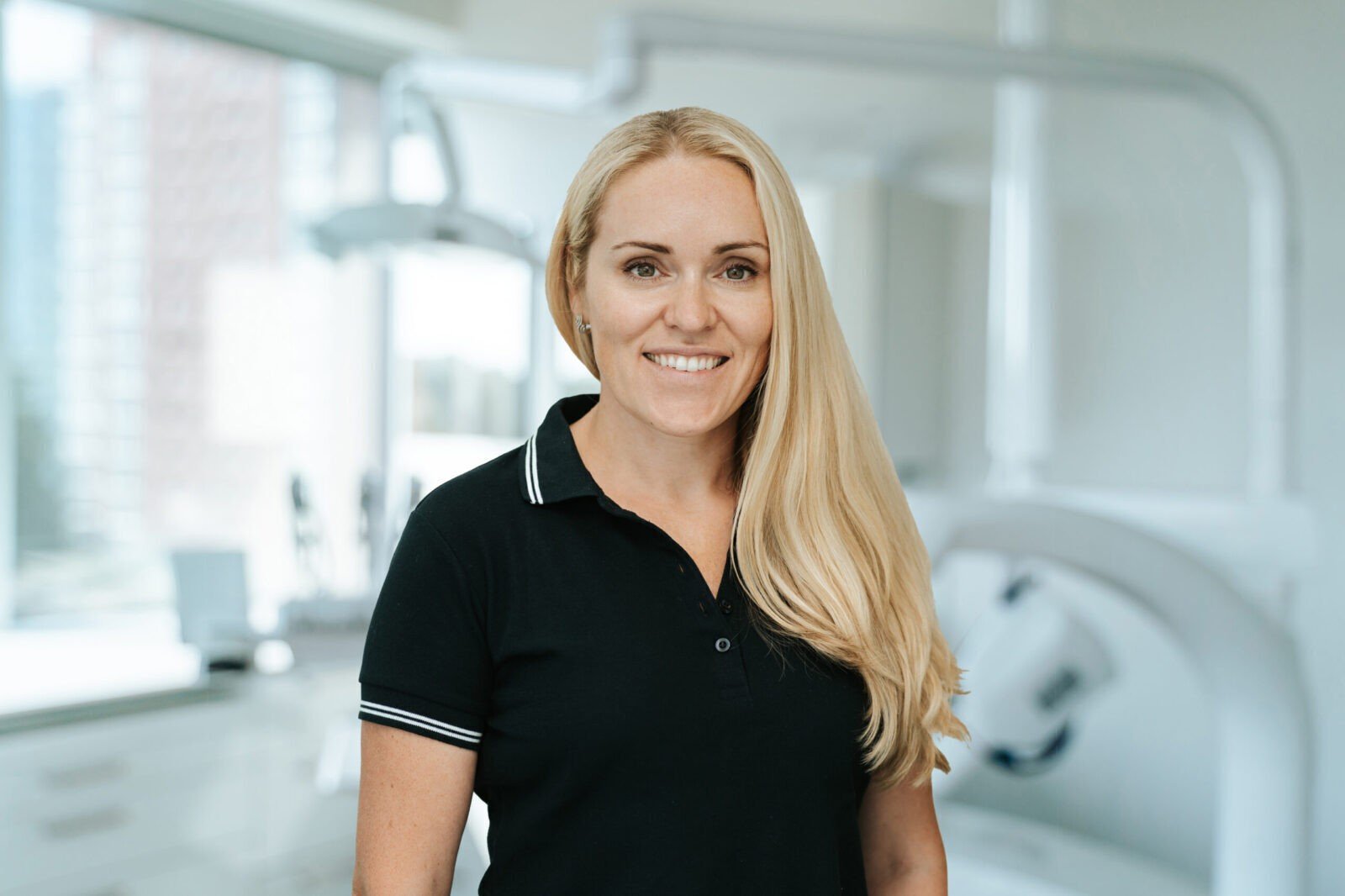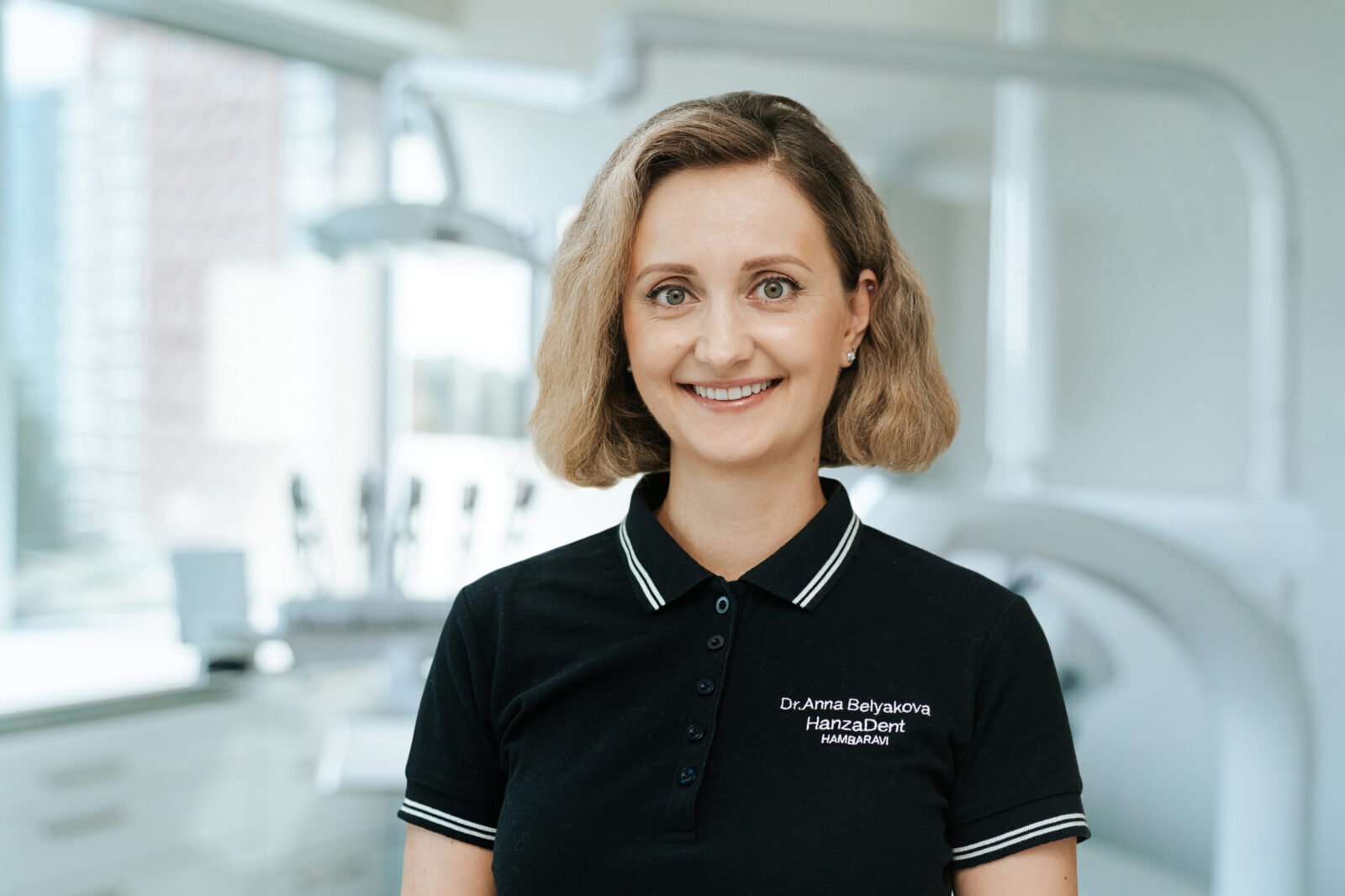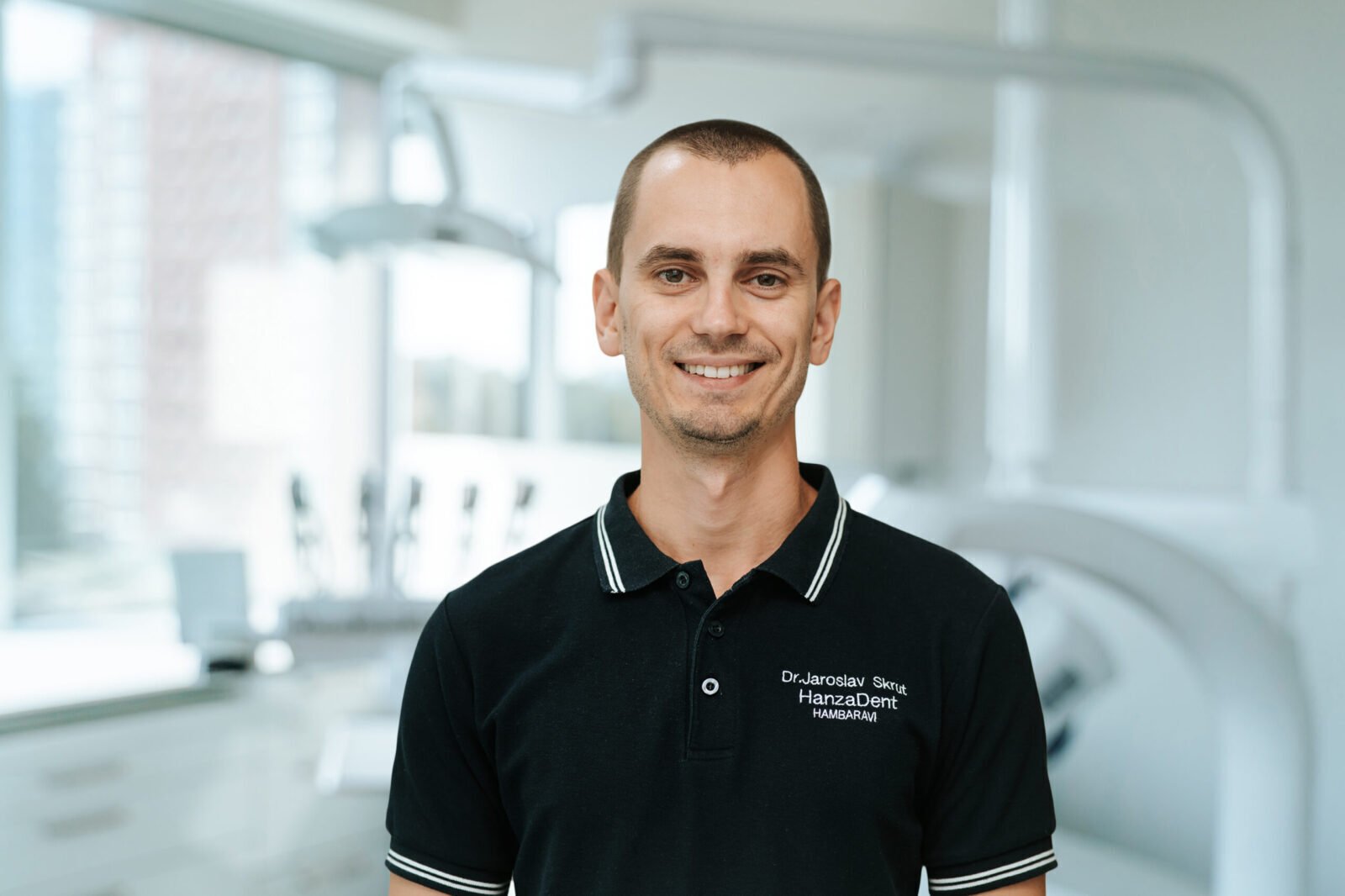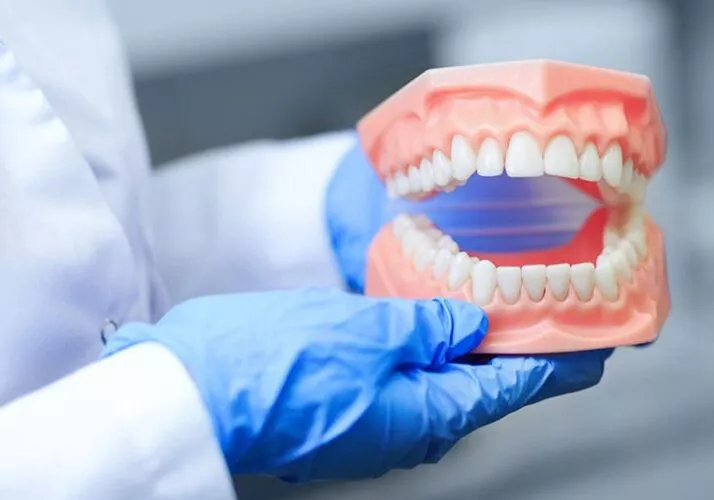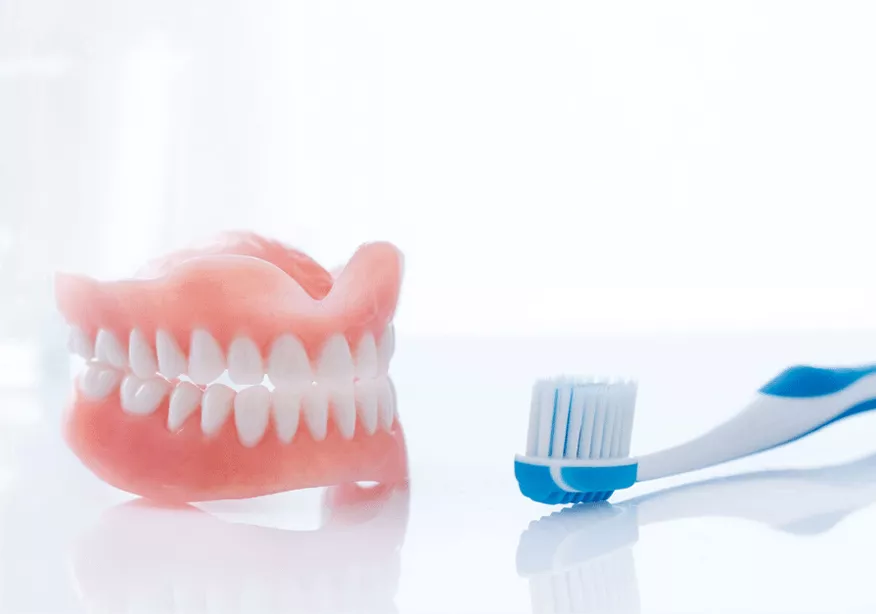
Dental Prosthetics
Restore your smile and quality of life at HanzaDent! HanzaDent Dental Clinic offers convenient dental prosthetics and aesthetic solutions for replacing lost teeth in Tallinn. Find out more and book an appointment today!
Book a visitModern Technology
Quality Guarantee
Leasing Option Available
Dental Prosthetics in Tallinn
Dental prosthetics in Tallinn are available in all three of our clinics. We offer a variety of prosthetic options. Every patient interested in dental prosthetics can choose a solution that suits their preferences and financial possibilities.
Types of Dental Prosthetics:
A. Removable Prosthetics:
- removable prosthesis with a soft base
- removable prosthesis with a hard base
- removable metal-frame prosthesis
- removable prosthesis supported by implants
B. Fixed Prosthetics:
- dental crowns
- tooth-supported bridges
- single-tooth implants
- implant-supported bridges
- implant-supported full-arch bridges (on 4 or 6 implants)
The plan for prosthetics of multiple teeth and/or a single tooth should be considered before tooth extraction. This is especially important for future dental implantation.
Dental prosthetics restore both the aesthetics and function of teeth and the smile.
For each specific case, a dentist can recommend the most suitable prosthetic method for the patient. You can conveniently book a prosthetics consultation through our online booking system.
Dental prosthetics are also included in the services compensated by the Health Insurance Fund. Pensioners can receive compensation of up to €260 for prosthetics expenses once every three years. The compensation is directly deducted from the patient’s bill in the clinic.
Book your consultation today!
Prosthetics come with a warranty ranging from 6 months to 2 years, depending on the material and type of prosthesis.
| SERVICE | PRICE |
| Consultation | from 60€ |
| Dental crown | 800€ |
| Total denture | 1000€ |
| Partial plate prosthesis on a hard base | 800€ |
| Partial plate prosthesis on a soft base | 900€ |
| Removable denture (Büügelprotees) | 1000€ |
| The price of the dentures is added to the price of the locks, if they are used. |
Satisfied customers
47000+

Customer Reviews
Great dentists who do their job well, both in treatment and consultation. In particular, Dr. Ermel's advice helped me take better care of my teeth, so I don't need to visit the dentist as often as I used to.

Aleksis Anijärv
Everyone welcomed me very warmly. The doctor has always worked quickly, painlessly, and with high quality. Now I visit Hanzadent twice a year for regular check-ups to make sure everything is fine and to feel more confident!

Stiven Lipetski
A very polite, professional, and attentive dentist, Dr. Rasmus Peeker!
My previous visits to the dentist were quite painful, especially the removal of a wisdom tooth. However, I went to Dr. Rasmus Peeker, and the wisdom tooth extraction was absolutely painless! Highly recommend!

Nadezda Zdanova
Dr. Alina Ismailova is very pleasant and professional.

Angelica Tahker
First-class service, truly impressive. I will definitely come back again!

Aleksandr Shmanjov
Dentists
Useful information
Process
1
Consultation and planning
The dentist assesses the condition of the teeth and gums, discusses the patient's needs and expectations, and prepares a personalized treatment plan, including X-rays if necessary.
2
Preparation for the procedure
If necessary, oral hygiene treatment is performed, damaged teeth are removed, or remaining teeth are treated to ensure the success of prosthetics.
3
Making and fitting prosthetics
The dentist takes impressions of the oral cavity, based on which individually fitting dentures are made, which are then fitted and adjusted to ensure the patient's comfort.
Dental Prosthetics: Contraindications
We do not recommend dental prosthetics in the following cases: acute inflammatory processes in the oral cavity, serious systemic diseases, allergies to materials used, inadequate oral hygiene, oral mucosa diseases, psychological conditions, or severe jaw deformities.
- Acute inflammatory processes in the oral cavity
- Serious systemic diseases
- Allergies to materials used
- Inadequate oral hygiene
- Oral mucosa diseases
- Psychological conditions
- Severe jaw deformities
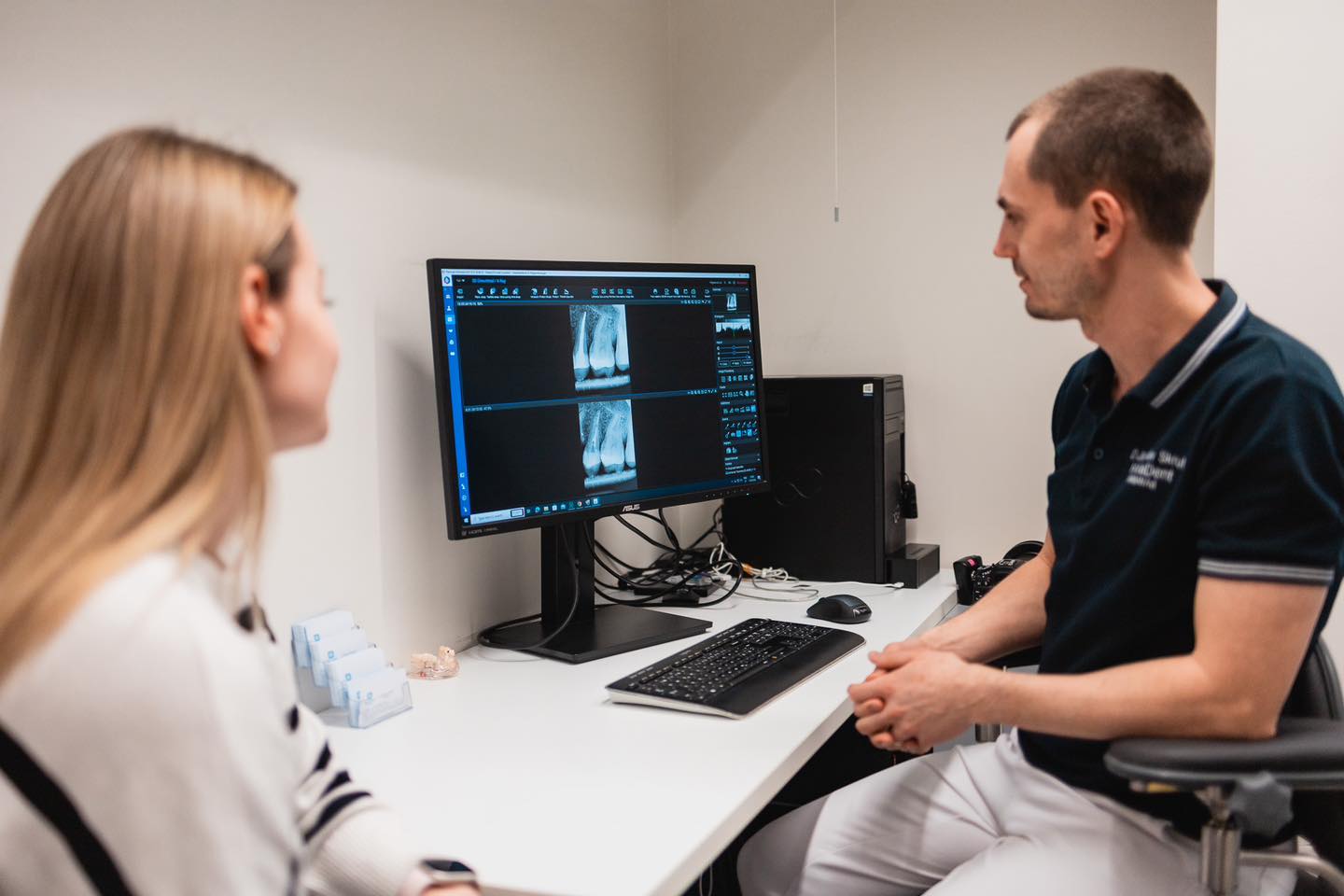

Dentist's advice
Dentist’s Advice: What happens if you delay dental prosthetics?
- Impact of missing teeth on health – Missing teeth can lead to jawbone atrophy, making later prosthetics more complex and expensive.
- Digestive problems – Insufficient chewing function may cause digestive issues due to poorly processed food.
- Tooth shifting and bite issues – Missing teeth often cause adjacent teeth to shift, disrupting the bite and potentially requiring orthodontic treatment.
- Aesthetic and confidence problems – A lack of teeth affects appearance and self-confidence, making communication uncomfortable.
- Increased complications – The longer treatment is delayed, the more difficult and costly it becomes to resolve the issues.
Act quickly for the best results! Book your appointment at HanzaDent today and keep your smile healthy and beautiful!
FAQ

Mihkel 32 y.
18.12.2024
Can I get a dental implant?
Mihkel 32 y. 18.12.2024
Answer:
In order to place an implant, you need sufficient bone volume to “hold” the implant. An x-ray is needed to assess the bone volume. If you have not had a recent x-ray, your doctor will take one during your consultation visit.

Laura 27 y.
18.12.2024
Is a bridge or a dental implant better?
Laura 27 y. 18.12.2024
Answer:
As a general rule, a dental implant is a better solution because it does not damage the adjacent teeth. However, each specific situation must be assessed individually. There are cases where there is not enough bone for implantation and at the same time the teeth that border the defect need to be crowned. In such cases, a bridge prosthesis is indicated.

Katrin 45 y.
18.12.2024
Do removable dentures stay in the mouth well?
Katrin 45 y. 18.12.2024
Answer:
The durability of a removable denture depends on many factors. This includes whether and how many teeth the patient has left in their mouth, how prominent the jaw is. There are cases when teeth have been removed a long time ago and the jaw has receded. In such cases, it can be difficult to keep the denture in place. In each specific case, asrt will help you choose the best method of denture placement and advise you on how to make the denture last better, for example, in some cases, denture adhesive may be used.

Andres 38 y.
18.12.2024
My removable dentures are rubbing. What should I do?
Andres 38 y. 18.12.2024
Answer:
New dentures can rub. In this case, you should make an appointment with the dentist who made the dentures and have them adjusted. Sometimes you need to go several times.

Kristiina 29 y.
18.12.2024
Is dental prosthetics a painful procedure?
Kristiina 29 y. 18.12.2024
Answer: Dental prosthetics is not a painful procedure.
If anesthesia is needed, it is administered before the procedure begins.
